We need to talk about cycling and sustainability
Compostable bags are an excellent first step, but consumers should be asking for changes in production, says sustainability expert

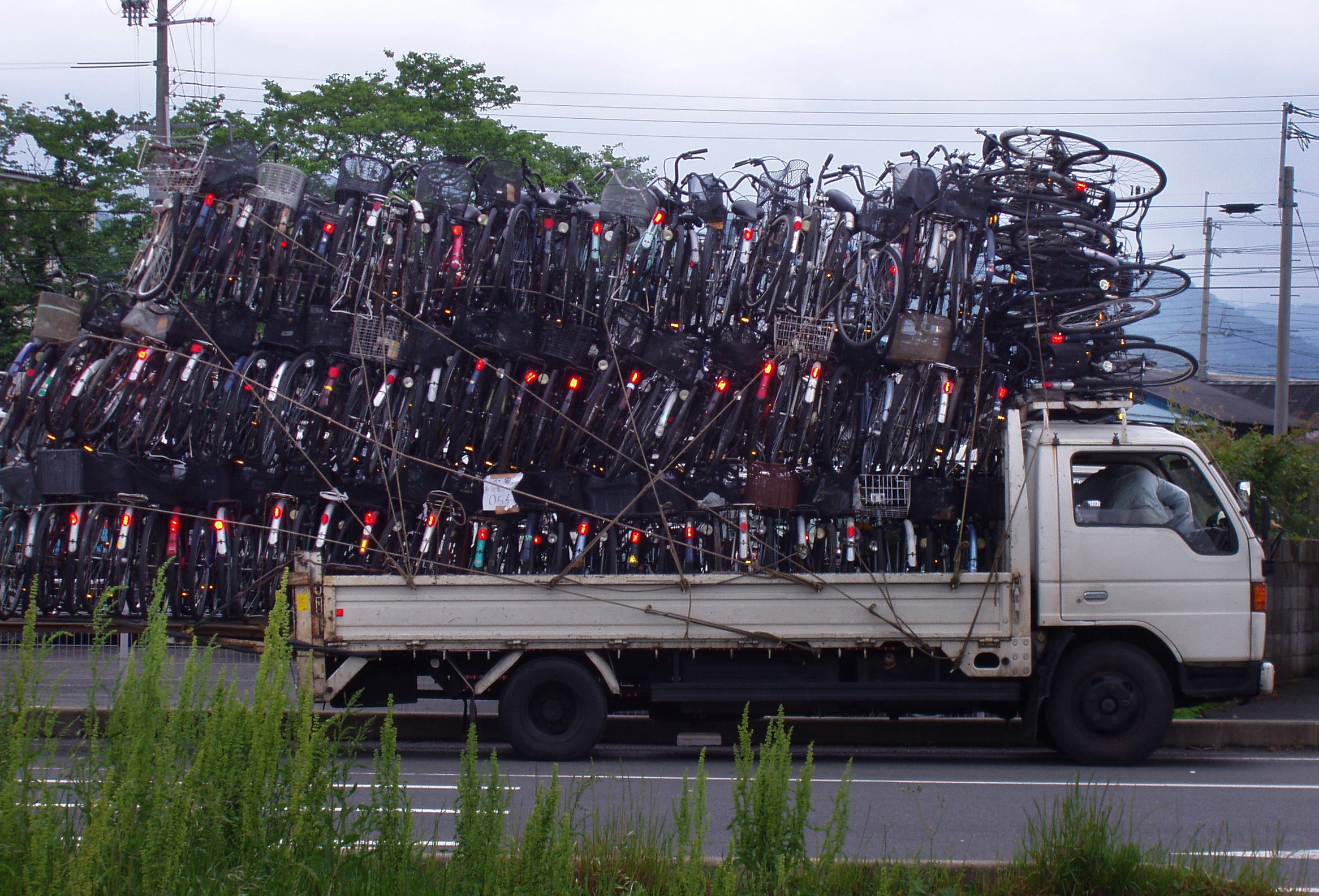
Actually, we need to talk about everything and sustainability, but I don’t work for Dining Out Weekly, Trips Abroad Weekly or Fashion Weekly (I don't think they'd let me and my current 'slob from home' themed wardrobe through the door).
Nor am I in any way intending to preach from a pedestal. In case illustration is needed, yesterday I shamefacedly unpacked four pears that were inexplicably encased in moulded plastic and wrapped once again in yet more plastic. Whilst adding the offending material to an overflowing recycling bin, I vowed to choose more carefully next time I ordered the food shop on Sunday night after a day in the saddle. So, no, I’m not perfect, but I am painfully aware of my impact on this planet.
Sustainability is taking up more space in the psyche of most consumers, but you wouldn’t be alone if setting a goal of ‘be more sustainable’ felt paralysingly equivalent to climbing an unstable mountain made from your own annual disposable coffee cup waste output. As admirable as striving for perfection may be, it’s likely an unsustainable goal in itself.
“Don't be afraid not to be living the perfect life. As long as you are taking steps and looking at where your impact lies, that’s what matters,” reassures founder and director at Shift Cycling Culture, Lian van Leeuwen.
What steps would be the most effective to take? Dissecting and altering the habits of generations is no easy task, but we asked Van Leeuwen - one of the three directors behind the non-profit sustainability organisation currently working with household names such as Specialized, Rapha and Muc-Off - to give it a go.
“If we break it down into individual actions such as ‘don’t throw out wrappers’, the change would be too small. But if you make it too big, people feel overwhelmed.”
“I usually try to break it down into actions on the mid-level. They’re not as concrete, but they are actions you can put in place,” she says.
The latest race content, interviews, features, reviews and expert buying guides, direct to your inbox!
Measure your impact
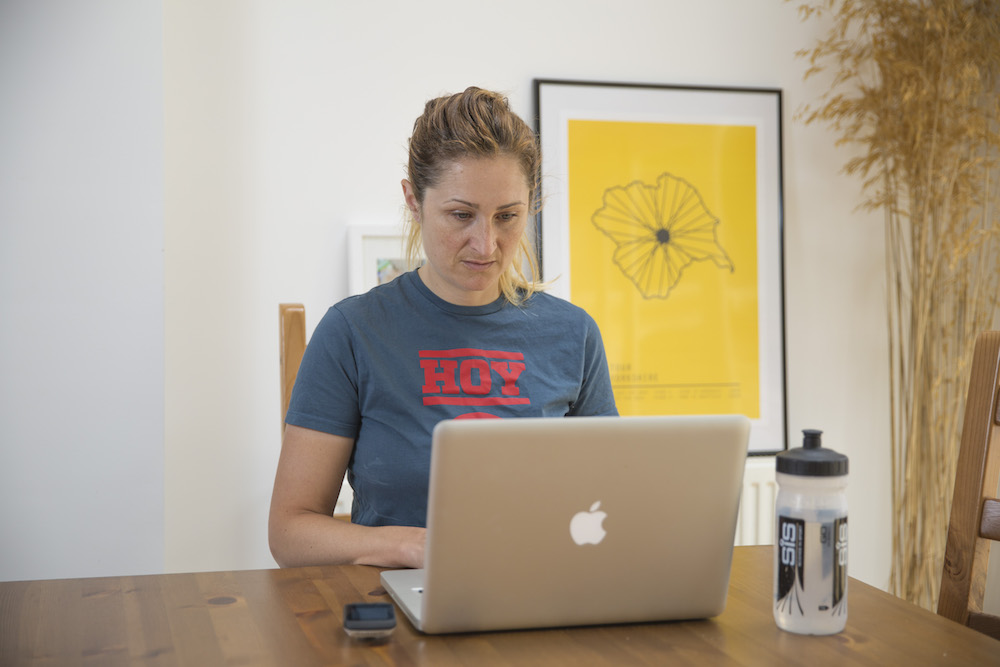
If you don’t know about ‘SMART’ goals, where have you been whilst the rest of us have been striving for anagram-based self-improvement? SMART goals are: specific, measurable, achievable, realistic and time related.
Homing in on the ‘M’, Van Leeuwen notes: “Look into where your impact lies, it might be flying to events overseas, it might be nutrition, it might be the amount of product you buy, there are a lot of tools for that to help you keep track.”
Shift’s website lists several apps for those getting started, such as the United Nations Environmental App, ‘Capture’ and the The Nature Conservancy Calculator.
“They’re not perfect,” Van Leeuwen admits, “but they do give you insight into where your impact lies. I think this is a very concrete action, you may note ‘I commute to work in a car daily, can I change that? Do I need to compensate in other areas?’ A concrete first step is to get an insight.”
Buy what you need, not what you want
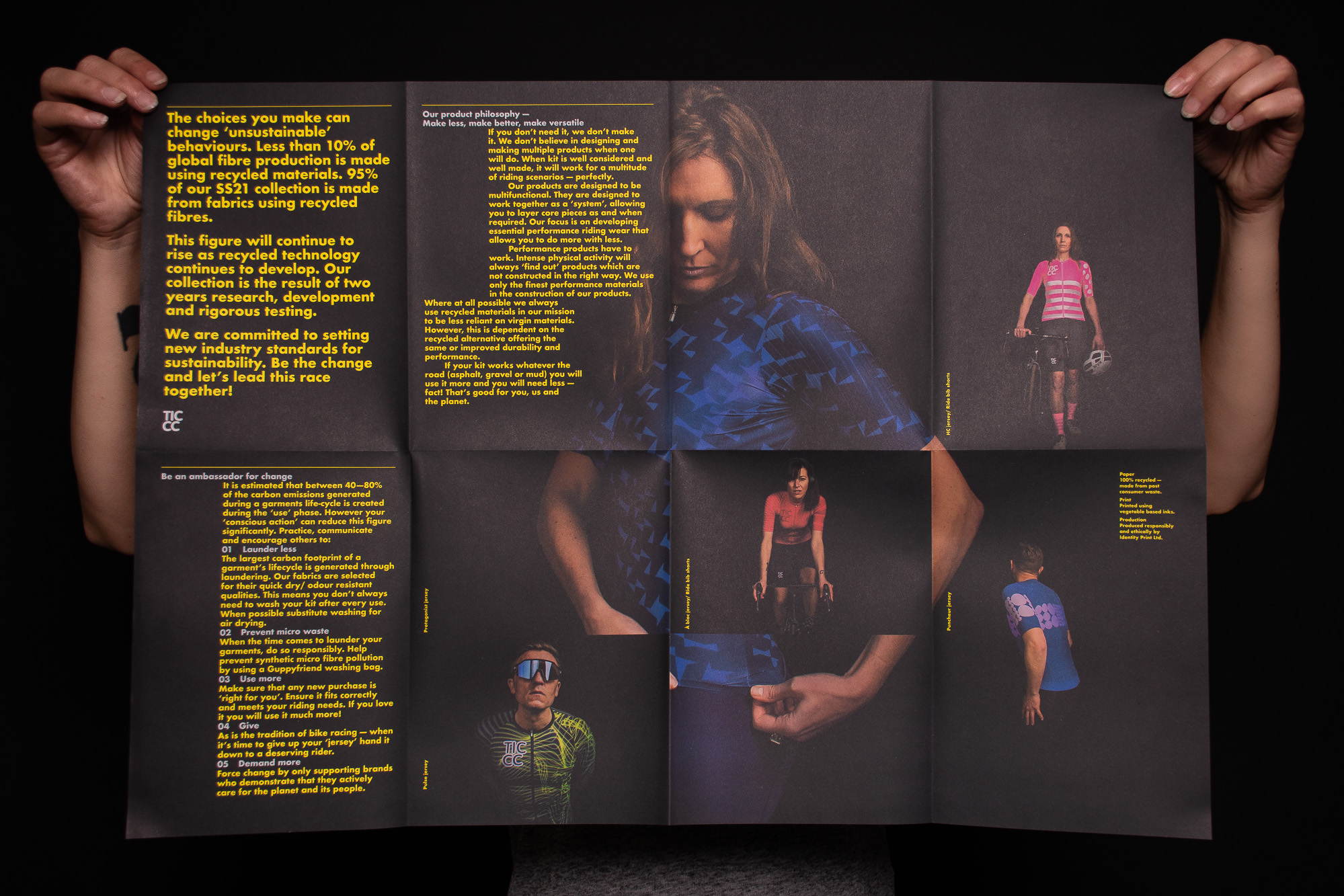
The TIC CC 'Be the Change' guide is about making kit last
For me, it’s a new pair of ‘race day’ socks, when, frankly I already own enough to outfit a size-six-wearing centipede.
“Look into your own consumer behaviour. We all get lured into a lot of things, but if you really want to help that's where to start,” says Van Leeuwen.
“Buy quality over quantity, really look for products that could have a longer life span.”
Make clothing work harder
TIC CC - a clothing brand that already prides itself on using sustainable fabrics, isn’t afraid to advise consumers on how to reduce the frequency of replacement, with tips such as laundering less, passing on kit to club mates rather than discarding it, as well as using laundering bags to prevent microplastics from leaving our washing machines for the wide-open ocean.
What area has the most impact: what we wear, eat, or ride? “It’s not about singling out an area - they’re all relevant. Bike frame material has a huge impact in terms or raw materials, but you buy one much less often than you may use nutrition products.
“Think overall, focus on mindset. Be aware of where you put your money, and how often you change your things, that’s the boring but sensible way to look at it" Van Leeuwen says.
Buy a bike for longevity
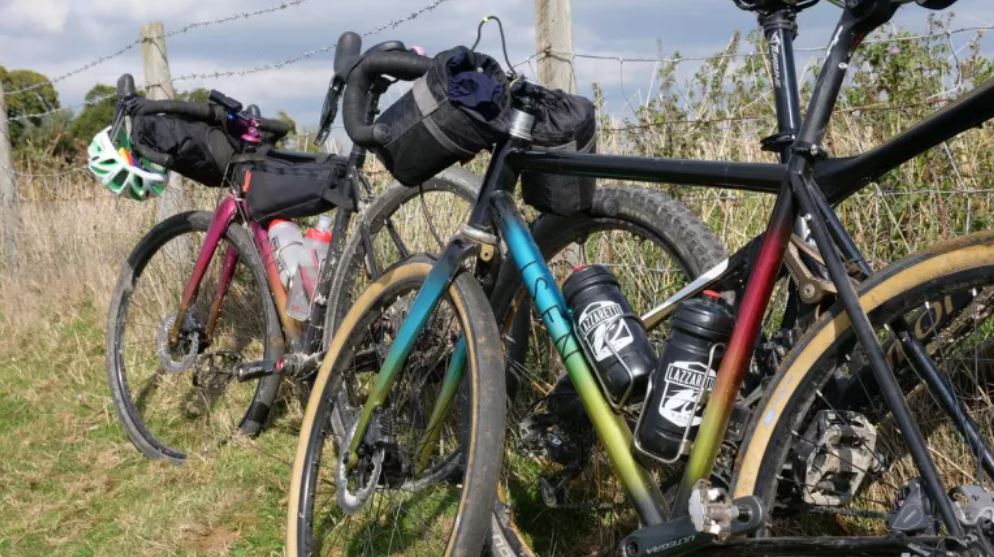
Cycling Weekly borrowed an Isen steel gravel bike for a Cycling UK tour, and, it was a thing of beauty
Whilst small changes add up, it is your bike choice that stands to have the greatest raw material cost. And, as much as we love carbon, it isn’t the most sustainable choice.
“Metal bikes are better,” Van Leeuwen confirms. “You can 100% recycle steel, with aluminium, you can reuse most of it, with carbon, really none of it can be recycled.”
Carbon bikes are made in moulds, as such, they can be fashioned into - well - meeting the current fashions. Comparatively, steel and aluminium welds leave a little less room for creativity with the basic shapes - though custom frame builders make up for that in spades with flamboyant paint jobs, expressive lugs and the very best head tube badges.
“Steel has less of a ‘fashion’ feel to it, it doesn't feel outdated soon - you can update it with new components, but the frame itself stays timeless, so it can have a longer life."
There’s an interesting trend within cycling whereby most riders under a certain age consider a custom steel or titanium bike as a ‘retirement’ choice, a thing of beauty to be reserved for the day we can read the map of adventures past within the wrinkles on our face. The truth is that one stunning, custom creation, would likely cost far less than a new carbon bike three times in a decade.
At the end of the day, though, there's little point in buying an aluminium bike only to live with it for a year and replace it with carbon. If a carbon bike is all that will do, look for one you'll love for longer: make sure it fits, and, difficult as the industry makes it, look for standard fittings such as a 27.2mm round seatpost.
Spend your money on brands that actually do care
“The big impacts are in raw materials, servicing and production and way less in packaging and distribution."
Lian van Leeuwen - Shift Cycling Culture
Are they setting targets?
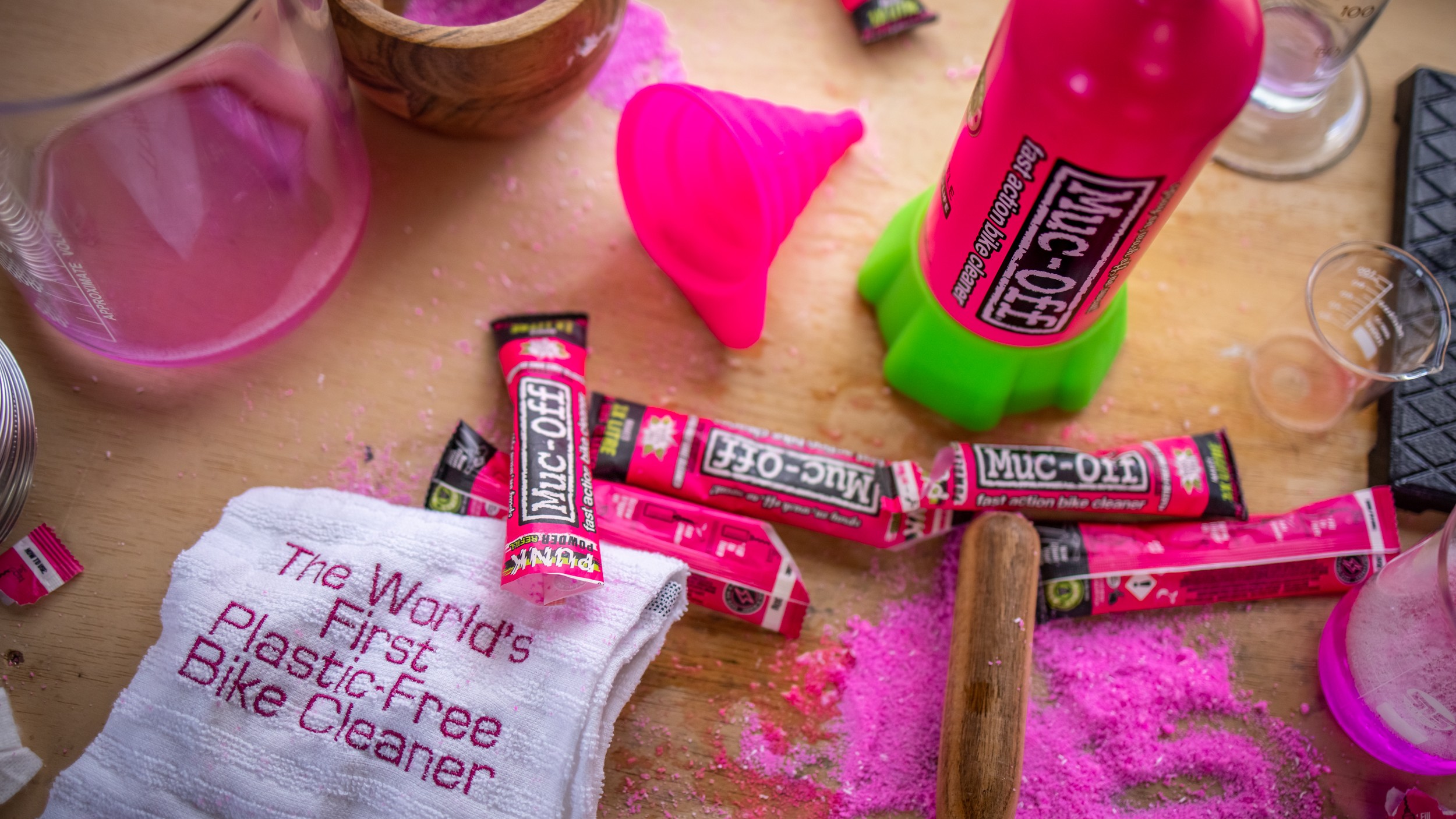
Setting targets is another marker of good behaviour, “it says something good about their intentions, transparency is important,” Van Leeuwen notes.
Dorset brand Muc-Off sets an example here. In 2020, the bike-cleaning leader was pulled up on failing to comply to recycling requirements set out by the Environment Agency, between the years of 2012 and 2016 - and ordered to pay £7,669. However, it subsequently launched ‘Project Green’, initially planning to cut down on over 30 tonnes of plastic by 2023, a goal it’s now boosted to 200 tonnes. Its latest plastic-free product, Punk Powder, should save 61 tonnes a year.
Money speaks, and it has a powerful message.
“You have a choice as a consumer, in all industries, and all products that you use,” Van Leeuwen reminds us.
When it comes to picking out “greenwashing”, she offers up some solid advice straight out of Journalism 101: “Do your research. A really good sign is that it’s not a capsule collection, one off, or special edition. It may be that this is the first step in a journey, in which case, great, but make sure that there’s a longer term plan, not just ‘look at us, we did one thing’.”
A tyre made from vegetation, for example, might not be the first step towards a new sustainable method of production, unless the brand in question has access to an endless supply of weeds.
“Look at where they put their efforts,” Van Leeuwen goes on. “The big impacts are in raw materials, servicing and production and way less in packaging and distribution. If their current action is just focused on packing, it could be the beginning of a journey, which is amazing, but it implies they’re not really focusing on where the actual impact lies. Are they talking about production or packaging? That’s a measure of how serious they are.”
It is important to be kind, though, whilst a compostable bag on its own won't change the world, every plastic bag saved is a positive step and in a far too polarised world, excessive criticism where it isn't due could even stop brands from taking the first steps.
"I speak to some brands who are scared to commit, in case they will be ‘judged’ [for not doing enough], we say, as long as you don't shout about it first, and start actions later, it’s fine - just be honest, say ‘we’re not perfect but we’re doing what we can’," says Van Leeuwen.
Talk about sustainability more and question brands
Seeking: standardisation
One of the greatest drivers behind waste in the cycling industry is a lack of standardisation. The march towards the obsolescence of the rim brake, endless cassette spline reinventions, frames shaped for aero seatposts that might save watts but don't guarantee a replacement part in a decade's time.
"Nowadays planned obsolescence is factored into production and I think it's pretty disgusting," says Jenni Gwiazdowski, mechanic at the London Bike Kitchen, a DIY workshop all about teaching people how to maintain their own machines.
"When bikes come in that need proprietary tools, we order them and take the hit. But it's just disappointing. It seems that nothing has changed in the internal gubbins - what's changed is the diameter or the splines, so I now need a different tool.
"I worry about waste as shifting becomes electronic, too. We have rear mechs in the workshop that are 80 years old, and they're still working. How long will an electronic shifter be supported?"
Touching on a similar issue, author of 'From Marginal Gains to a Circular Revolution: A practical guide about sustainability in cycling', Erik Bronsvoort pulled up rapidly disintegrating chainring teeth - necessitating the need to bin an entire ring of metal once a tiny percentage has worn down - as a major contributor to cycling's waste.
If this is a question that keeps you awake at night, then it's one to press brands over. “The question of standards, as a consumer, is a hard one to solve," Van Leeuwen says. "Individuals can put pressure on them, ask questions, and support service models where you rent a bike as opposed to buying one - that incentivises longevity as it's cheaper for the provider to make kit last. But really, this is a problem that lies with the brands, and eventually, legislation.”
If it feels like, as a consumer, you’re a tiny ripple in a huge ocean, then that feeling is based upon some truth. But, as well as taking care where you spend your money, you can start conversations.
“Some companies put the pressure of change on the individual - encouraging people to ‘buy off their guilt’, I always try to underline that whilst individual acts are super important, the real impact lies in production - with companies, or with governments; change there is way more effective.”
And your questions are heard - even in the board room.
“We have a group of CEOs that we work with, from bigger brands in cycling, one of the things they tell us is that it’s very hard for them now to hire good people if they don’t have an answer to the question ‘what is your strategy on sustainability?’" - something to bear in mind, whatever industry you base your work in.
“Consumers are getting more and more aware and speak their mind more, that will definitely increase the pressure as well to change. Speaking about it, starting conversations, asking questions, are all things you can do as an individual."
“Things are moving in the right direction though,” she adds. “It is harder with the manufacturing of bikes because there are fewer comparable industries to learn from. But look where we are with clothing, now, there is no reason not to be sustainable as there is no performance drop off, that wasn’t the case 10 years ago."
It's a long road, but with enough pressure forming in the right direction, we're on the way.
Michelle Arthurs-Brennan the Editor of Cycling Weekly website. An NCTJ qualified traditional journalist by trade, Michelle began her career working for local newspapers. She's worked within the cycling industry since 2012, and joined the Cycling Weekly team in 2017, having previously been Editor at Total Women's Cycling. Prior to welcoming her first daughter in 2022, Michelle raced on the road, track, and in time trials, and still rides as much as she can - albeit a fair proportion indoors, for now.
Michelle is on maternity leave from April 2025 until spring 2026.
